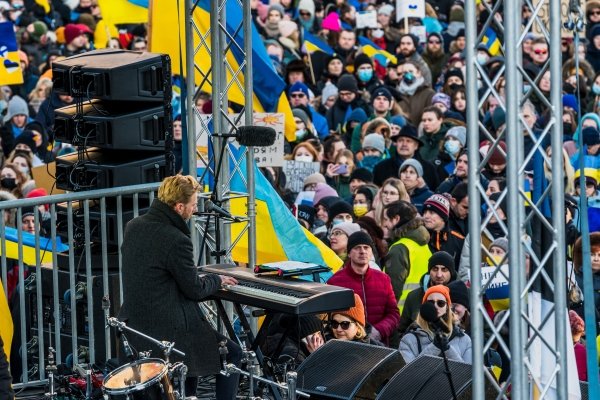Still to Come This Week
 |
Monday, Nov. 27 // 11:00 am–12:00 pm (ET)
Gwendolyn Sasse is among the world's leading experts on Russia and Ukraine, and her recent book, Russia's War against Ukraine, is among the first major books on the war in Ukraine and the historical origins of this conflict. In this Long View conversation, Michael Kimmage will interview Sasse about the writing of this book, the best available analytical frameworks for understanding the war, and the policy implications of her book. At the end of this conversation, audience members will have a chance to ask questions.

Monday, Nov. 27 // 4–5:30 pm (ET)
Nationalism is often deemed a purely political or cultural ideology whose proponents are uninterested in the minutiae of economic policy. Marvin Suesse shows that nationalists do in fact think about the economy, and that this thinking matters once they hold power. Drawing on case studies from the American Revolution to the rise of China, he explains the varieties of economic nationalism, elucidates their origins, and analyses their effect on the development of the global economy.

Wednesday, Nov. 29 // 10–11:00 am (ET)
In the wake of Russia’s full-scale invasion of Ukraine, many Russian academics left Russia for Europe and elsewhere fearing increased reprisals from university administration as well as from the state itself. In Belarus, however, this trend began over a decade earlier. This panel discussion will examine how academics have rebuilt, or are rebuilding, their research, their networks, and even in some cases their entire universities.

Wednesday, Nov. 29 // 1:30–2:30 pm (ET)
As the race to strengthen critical minerals supply chains heats up, attention has increasingly turned to the abundance of those minerals on the ocean floor. Since 2001 the International Seabed Authority (ISA) has issued exploration contracts to search for polymetallic nodules, polymetallic sulphides and cobalt-rich ferromanganese crusts and in the summer of 2023 announced an agreed deadline of 2025 for the adoption of regulations governing seabed mineral extraction in the international seabed area (the Area). As discussions progress, there have been calls for a 10-year moratorium by environmental groups and some governments, and the issue is complicated further by the fact that the US government is not a signatory to the UN Convention of the Law of the Sea (UNCLOS) and therefore only holds observer status in the ISA.

|





